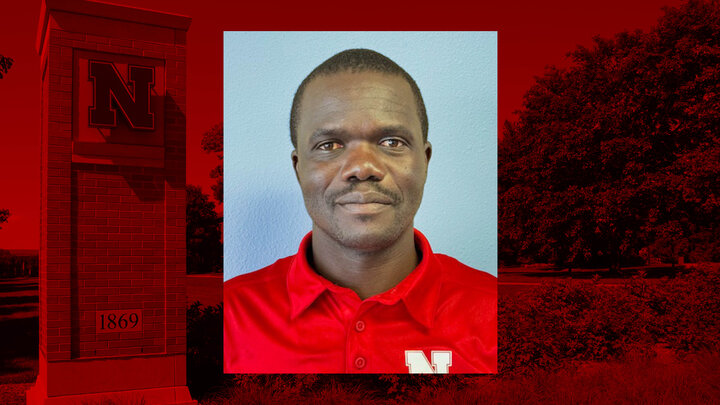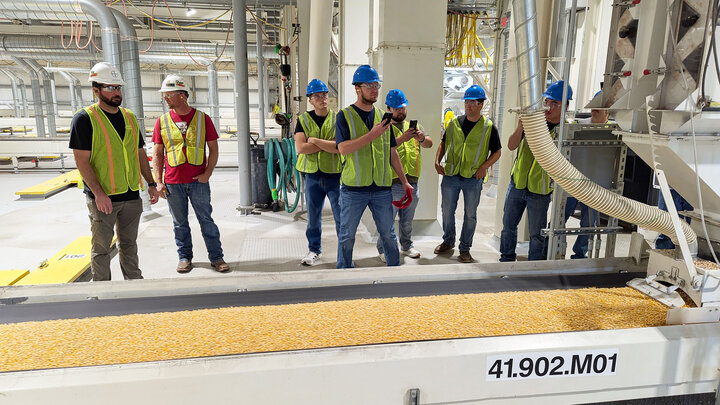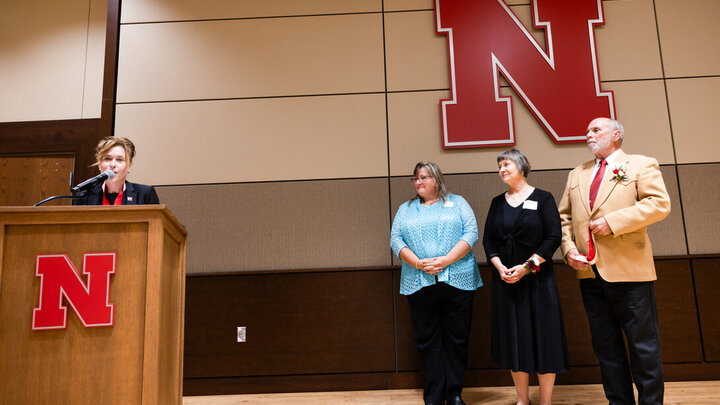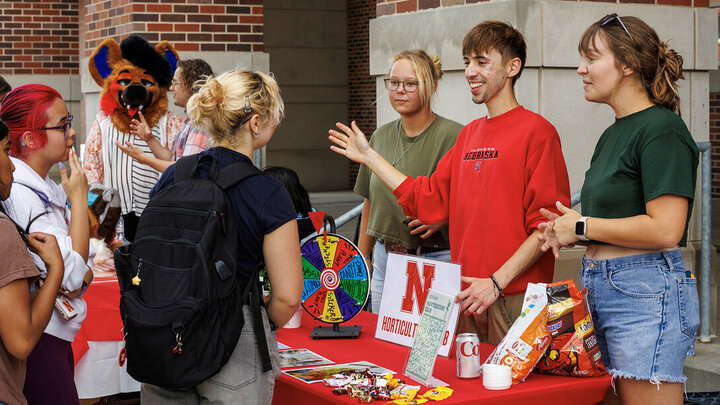Lawrence Aula began March 1 as a research assistant professor in agronomy and horticulture at the Institute of Agriculture and Natural Resources’ Panhandle Research, Extension and Education Center in Scottsbluff. He has a 100% research appointment.
But this is not Aula’s first time conducting research at Nebraska. He worked alongside Cody Creech and Amanda Easterly as a postdoctoral research associate in the Dryland Cropping Systems lab from December 2021 to August 2023.
“I was responsible for collecting and synthesizing existing data from a long-term tillage experiment located at the High Plains Ag Lab near Sidney, Nebraska,” Aula said. “I also conducted research to improve winter wheat seeding decisions based on seeding rates, cultivars, planting dates, and row spacing.”
In his new position, Aula is investigating how converting a long-term continuous no-till plot that relies solely on herbicides for weed management to an occasional tillage plot affects the physical properties of its soil. His research project calls for tilling the soil every six years so he and his team can establish the long-term effects of the transition.
Growing up in Oyam, Uganda, Aula’s childhood was affected by the actions of a rebel group called the Lord's Resistance Army. Before moving to Lira municipality, his family would occasionally spend a few days “sleeping in the bush to avoid rebel attacks.”
During this time of instability, he developed an early interest in agriculture as he worked alongside his parents to produce crops.
“My interest in soil fertility was sparked by the realization that soil fertility had been declining on our small farm in Uganda due to continuous crop production without replenishing what crops we were removing from the soil,” Aula said. “I wanted to contribute to developing solutions that increase crop yields without lowering the fertility of cropland soil.”
Aula received a bachelor’s in agriculture in 2009 from Gulu University, Uganda. He then went on to earn a master’s degree in plant and soil sciences in 2017, and a doctorate in soil science in 2020, from Oklahoma State University.
Before he returned to the University of Nebraska-Lincoln, he worked in the Department of Crop Science and Production at Kabale University in Uganda for a year and a half. There, he taught soil science courses like soil fertility and plant nutrition.
“As I pursued more in this field, I realized that producers in other places around the world were applying nutrients beyond what the crop demanded, with negative consequences on the environment,” Aula said. “This motivated me to focus my attention on improving nutrient use efficiency, particularly nitrogen use efficiency, by developing models for predicting yield and making recommendations for nitrogen in cereal crops midseason.”
Aula said one of his greatest professional accomplishments was contributing to research that increased the precision of grain yield prediction and nitrogen recommendation models in cereal crops. He transitioned to Nebraska to take advantage of the university’s resources to continue conducting applied research that has a meaningful, worldwide impact. He hopes his research can help solve societal food production challenges.
Outside of research, Aula spends a significant portion of his time walking, caring for trees and watching soccer. He tries to watch a match every weekend to recharge.



